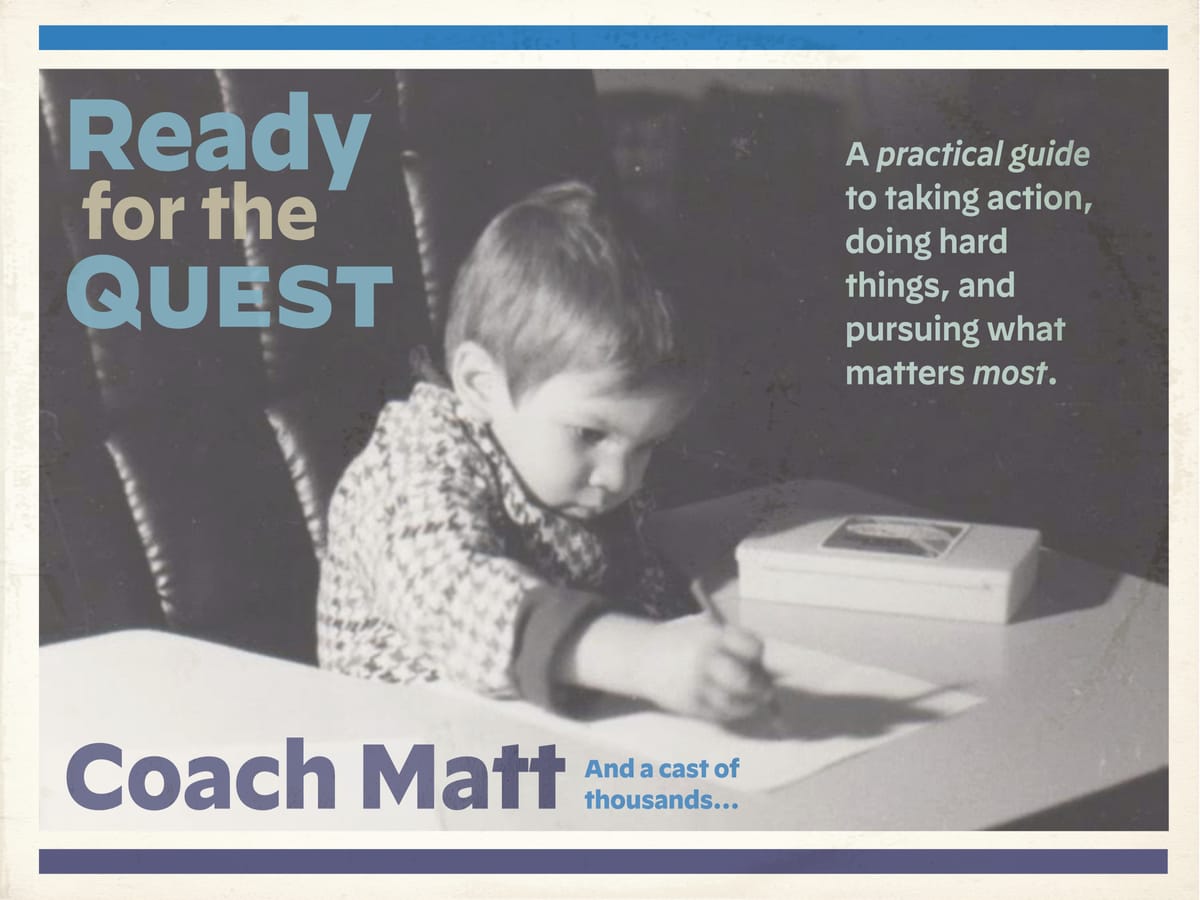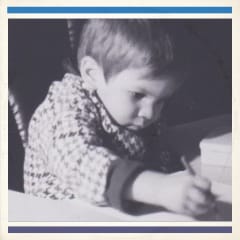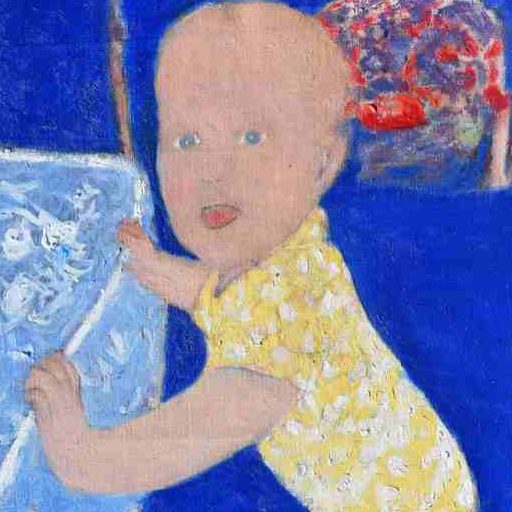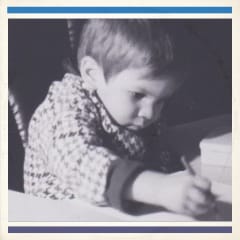Ready for the Quest
NOTES // Chapter Eleven
00:24 // "How will you go about finding that thing..."
That's my dear friend and co-conspirator Jennifer Schlueter. She's reading from Rebecca Solnit's A Field Guide to Getting Lost, which we both love.
The selection begins with a quote from the pre-Socratic philosopher Meno, "How will you go about finding that thing the nature of which is totally unknown to you?"
I mean, that's sort of the whole ballgame, isn't it?
1:53 // "That takes grit."
I'm making another reference to The Absurdity of Writing Poetry here, my solo show from 2006. Here's what I said then.
To realize that who we are is not ours to know, that what we think or feel is always a translation, that what we want is not what we wanted, nor perhaps what anyone wanted – to realize all this at every moment, in every feeling... To face a blank page takes courage, yes. To face a blank life, yet to be written, that takes more. That takes grit.
2:00 // "You've probably heard about grit..."
Dr. Angela Duckworth released her book Grit: The Power of Passion and Perseverance in 2016.
This is the talk from her that I most often recommend →
I study grit because it is those gritty individuals who prefer to finish things that they've started. They have interests that sustain them over years – if not decades, if not a lifetime – that keep them from quitting one thing after another after another.
She also has a great TED Talk →

2:43 // "It is the summation..."
Say hello to Blythe Coons, reading from Dr. Duckworth's book.
5:44 // "Talent counts. But effort counts twice."
Another quotation from Dr. Duckworth, from page 34 of her book.
6:30 // "Time ain't tough, they're tedious..."
A lyric by Paul Westerberg, from The Replacements' "Heydey," on the album Hootenany.
7:01 // "When the mere act of showing up..."
This is Artie Isaac reading from Julia Cameron's The Artist's Way.
7:34 // "Sustained interest..."
I remember re-reading this section after I'd found out about my ADHD. As they say – it hit different. And every time I hear this now, I think, "Or maybe that's just me."
I don't actually think that's true. In fact, I know it's not just me, and it's not just ADHD people.
Nevertheless, it's worth acknowledging that this "sustained interest" is particularly challenging for some people – including some who are dealing with ADHD. I describe the way my ADHD shows up as a "bias for stimulation" and a "need for novelty." And if it is an obstacle for you, it's useful to know that, because then you can tend it. Be aware that some days you might be feeling less gritty, less able to stick with the work, just because everything is old hat. You might have to work extra hard to find out what's new and interesting about the work that day.
Or, to reframe it – All you have to do, is figure out what's novel about the work that day, and you'll get interested.
If you're ADHD-curious, about yourself or somebody else, please check out this page I made →

8:09 // "If you're Steve Young, hall of fame quarterback..."
Dr. Duckworth talked about Steve Young in Grit.
And just listen to that first quotation in this official NFL highlights video.
To Steve's credit, when it came his time to play, he was ready.
8:57 // "As a potter, it means throwing forty pots a day..."
Allow me to introduce you to my favorite potter →
Thanks, Michelle!
9:28 // "Dealing with the temporary frustration..."
There's Savage Dave AKA Dave Wallingford again, quoting Coach Christopher Sommer, former US national team gymnastics coach and the founder of Gymnastic Bodies. This is from that Tim Ferriss book, Tools of Titans.
10:27 // "Wouldn't you rather be doing something more stimulating..."
There's Lonelle Yoder once again bring us the evil voice of Resistance.
Hilariously, I wrote that line even before I was diagnosed with a bias for stimulation (See the note about "sustained interest" above.)
11:40 // "Resistance is strongest at the end..."
This idea comes from Pressfield's The War of Art. He says →
The danger is greatest when the finish line is in sight. At this point, Resistance knows we're about to beat it. It hits the panic button. It marshals one last assault and slams us with everything it's got.
11:46 // "You've got to walk, better yet crawl..."
This is a bit of poetry is from the author's introduction to Desert Solitaire by Edward Abbey – twentieth-century polemicist and desert anarchist.
This is a book you give to someone who's just returned from their first experience with big nature – a national park, mountains, the ocean, a real desert. I cannot count how many times I've read it. And I've listened to the audio version, performed by Michael Kramer, another dozen times. It's a beautiful book. It is not an optimistic book.
The epigraph to Desert Solitaire is from the poem "From the Heights of Maccho Picchu," by Pablo Neruda.
Give me silence, water, hope.
Give me struggle, iron, volcanoes.

12:18 // "It's just a trick..."
Here's Rudy Frias as Rodney Mullen again. This quotation is from that Tony Hawk documentary, Till the Wheels Fall Off. At least I'm pretty sure it is. I think I'd better go watch it again and make sure.
I'll report back. It's possible it's from this Hawk vs Wolf podcast episode →
14:18 // "Confidence is a feeling we get..."
This is River Caelum reading what Seth Godin wrote about confidence in The Practice. This is on page 29. Remarkably, it's the same section I quoted in Chapter 3, about imposter syndrome. This might be the best page in the book!
16:11 // "There is an equation for trust..."
The Trust Equation is a super useful tool. You can read about it in The Trusted Advisor by David H. Maister, Charles H. Green, and Robert M. Galford.”
Or, watch this video for the quick n dirty version (which is still pretty darned cool.)
17:14 // "Sister Mary Corita Kent and John Cage..."

Rowan Winterwood and Ian Short (Available Light company members) are here to read you a couple of rules.
As Maria Popova explains, Sister Corita Kent created a list of suggestions as part of a project for a class she taught in 1967-1968.
It was subsequently appropriated as the official art department rules at the college of LA’s Immaculate Heart Convent, her alma mater, but was commonly popularized by Cage, whom the tenth rule cites directly. Legendary choreographer Merce Cunningham, Cage’s longtime partner and the love of his life, kept a copy of it in the studio where his company rehearsed until his death.
So now, there's a document that circulates on the web called "10 Rules for Students and Teachers from John Cage." It has the address of the Merce Cunningham Studio in NYC at the top. And a lot of people don't know about Sister Corita's very important part in this story.
There's a copy of the list hanging in Available Light Theatre's rehearsal room. It's been there ever since we created a play called John Cage 101.
When we finished creating that play, I felt like I finally (after twenty years of work) felt like I knew what I was doing in the theatre. I loved that show. I hope we get to do it again someday.
17:50 // "...this one's about a fish."
I need to set the record straight about this story that's supposedly from Peter Brook's book, The Open Door.
There definitely is a chapter in that book called "The Golden Fish," but it is hardly the lesson as I've remembered it. It seems that I have radically adapted the story over time, altering it as one might in a game of telephone, until it's reached its current state, as you hear it on the recording.
I was mortified when I discovered this. Peter Brook had just passed away and I had already recorded this part. I worried that I was not showing him the proper respect. Next to Anne Bogart, Sir Brook is surely the theatre artist who's had the most influence on me. I don't know where I'd be if I hadn't read The Empty Space.
Nevertheless, I've decided to leave this mutant of a story as it is. Sometimes, this is how art evolves and this is how stories evolve. Artists take the pieces that serve their needs and remake them into something new. This is the way it's always been.
Or, to be a little less high-falutin' about it – I like this version, and I believe Sir Brook will forgive me.
Brook was remarkable in a number of admirable ways. I could talk about a dozen different productions and how each of them affected me.
Here's a production for a documentary feature, directed by his son.
And here you'll find a production that was a big deal for both Acacia and me. It's his 2002 production of Hamlet, which features both Sir Adrian Lester and (in a smaller role) the almost mythical actor Yoshi Oida.
One of Sir Brook's peers, Sir Peter Hall, said of him, "“Peter is the quester, the person out on the frontiers." No wonder I admired him so much.
19:32 // "What is his measure of success?"
I first read the term "measures of success" in William Ball's book, A Sense of Direction. I was very young when my friend John Dranschak brought Ball's book home from Kenyon College. After I read it, I was astonished. After all - I'd already directed four plays, and it turned out I'd done them all wrong!
In addition to being one of the only books on direction that actually tells you what to do, it also begins with one of the most wonder-inducing chapters on the nature of art and the universe that I've read anywhere. William Ball's is one of the great untold stories of the theatre. He has relatively little renown, given the scale of his influence.
I adore my copy of the book. It is well-worn because it is so well-loved. Tucked inside the front cover are some observations on directing made by my friend Cecily Smith, who was extremely frustrated with an extremely bad director. Here notes are all about what not to do.
There is a 1976 production of Shakespeares The Taming of the Shrew, from Ball's American Conservatory Theater, which is available on DVD. (At the moment, it's also on YouTube.) The production is a wonder. It is hysterically funny and will make you love both Shakespeare and Commedia dell'Arte.
21:10 // "And you'll say, to Resistance..."
The readers in this section are, in order:
- Blythe Coons
- David J. Glover
- Amy Rittberger
- Azalea Faye
- Jennifer Schlueter
- Me
- Adam Humphrey
- Jay Rittberger
- Rudy Frias
- Drew Eberly
23:23 // "Take what the defense gives you..."
There it is, on the board where it's been since 2021.
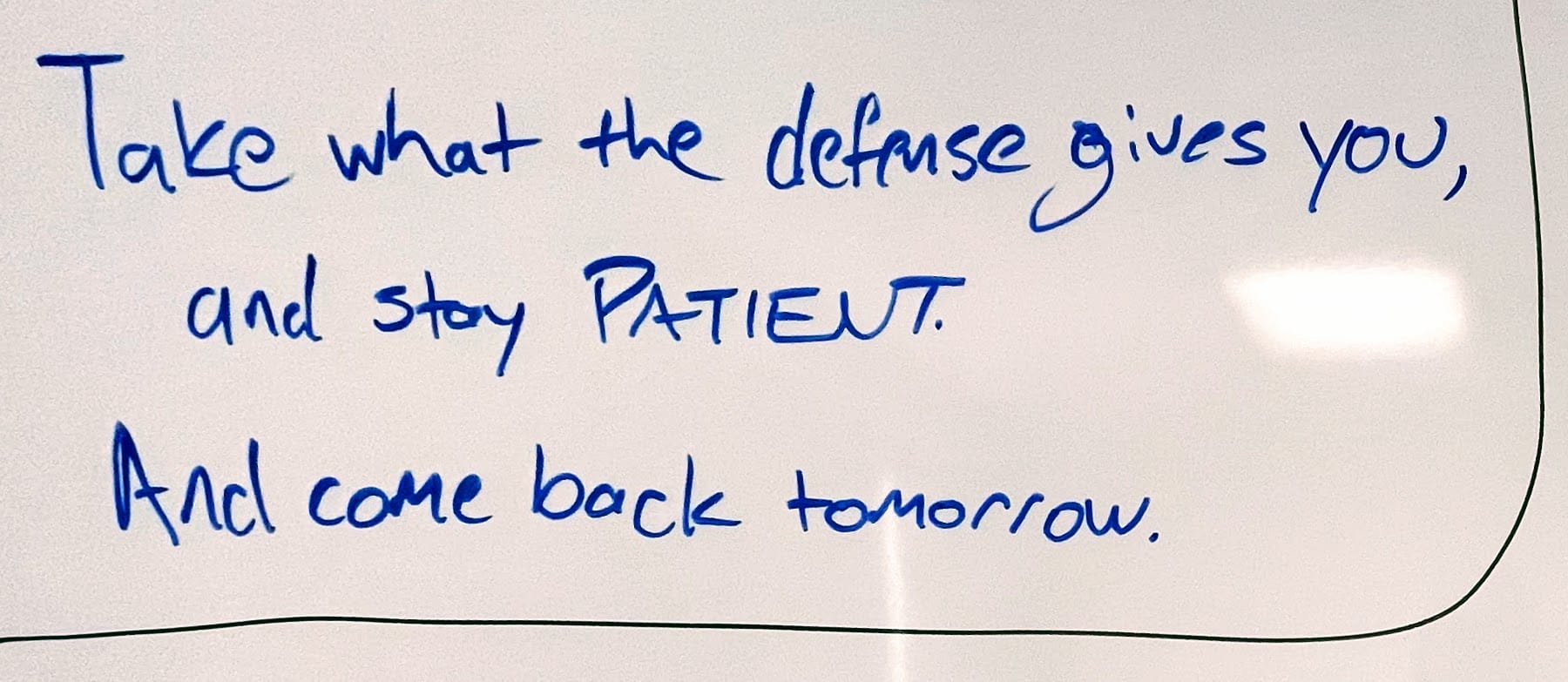
23:24 // "When the mere act of showing up..."
This is Artie Isaac reading the whole quotation from Julia Cameron's The Artist's Way. This is one of my favorite readings in the (audio)book.
When the mere act of showing up is like walking through a trackless desert, one footfall after another with no apparent point. Droughts tell us that they will last forever, and that we will not.
What do we do?
We stumble on.
And when the drought ends, it will because we’ve stumbled on...
doubts and all.
24:42 // "Don't wait..."
As you might know by now, this "Don't Wait" mantra came from The Director Prepares, a book by Anne Bogart and it was a central theme of The Absurdity of Writing Poetry and it's been pretty important in my life.
25:52 // "There's a little story I love about a gardener..."
I have no idea where I first heard this story. Some book somewhere. I'll try to figure it out.
I do know that Ian Short told this story, at the very end of a very important play that we made called Dirty Math, in 2009.
25:52 // 🐦 birds
These birds, which you've heard at the beginning of every chapter of this audiobook (and a few other places) were recorded in the spring of 2023, at about 7 o'clock in the morning, in Yellow Springs, Ohio.
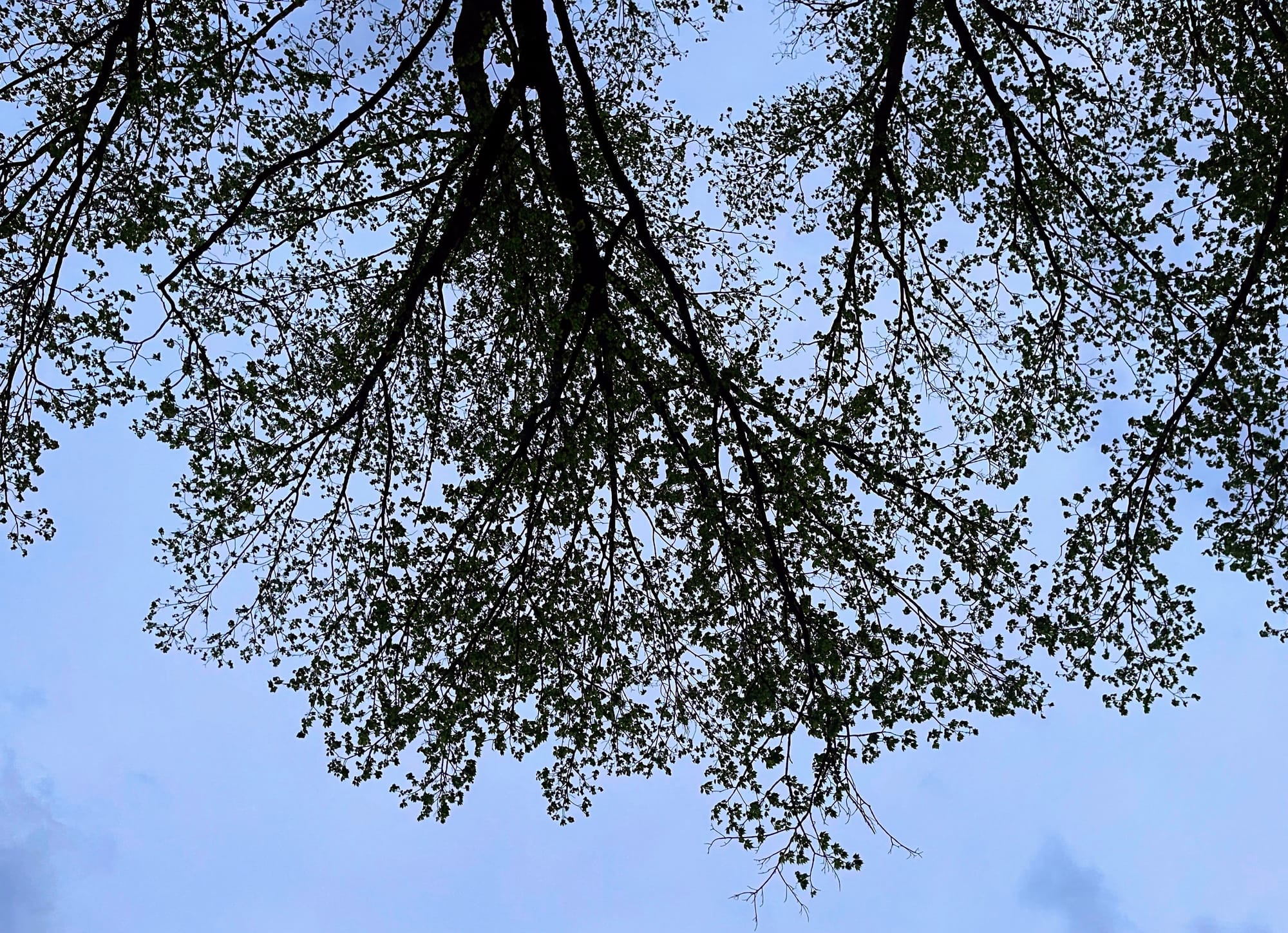
I look forward to seeing you down the road somewhere.
All the will.
- Matt
